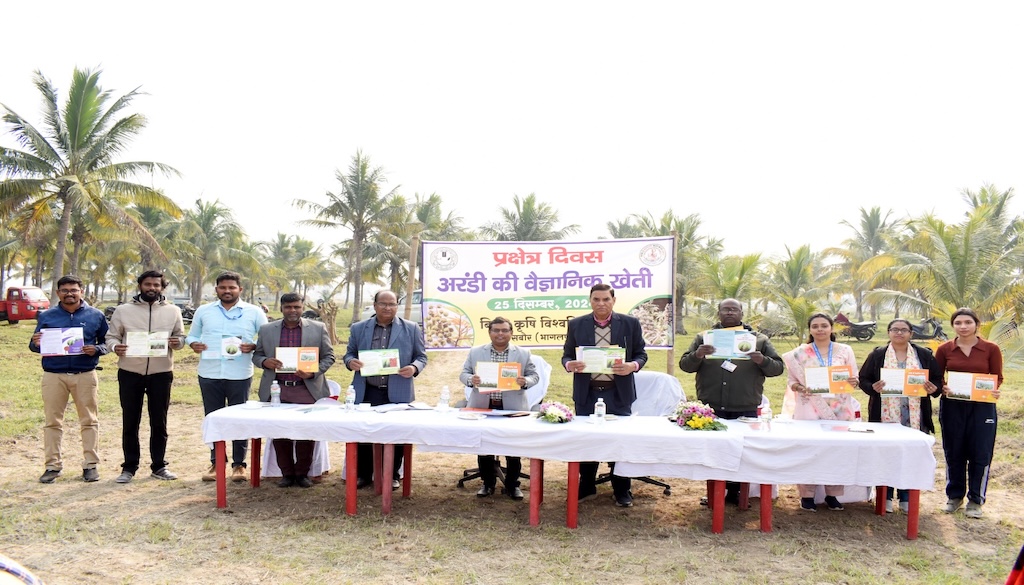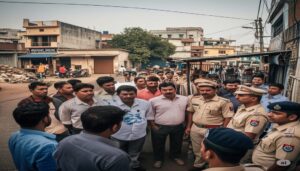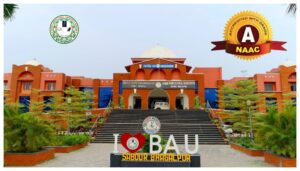Bihar Agricultural University Hosts Field Day on Castor to Promote Sustainable Farming and Rural Development

Bhagalpur: The Directorate of Research at Bihar Agricultural University (BAU), Sabour, successfully organised a Field Day on castor cultivation, drawing over 50 farmers, including a notable number of women participants. The initiative aimed to raise awareness of the benefits of castor farming and its potential to transform Bihar’s agricultural landscape.
The event, which served as a platform for knowledge and technical exchange between farmers and scientists, focused on promoting castor cultivation in Bihar and adjoining regions. Participants were introduced to the crop’s commercial importance and its potential to contribute to rural development, agro-industries, and entrepreneurship through startups.
In his keynote address, Dr Anil Kumar Singh highlighted castor’s suitability for Bihar’s agro-climatic conditions, describing it as a versatile crop with applications in biofuels, cosmetics, pharmaceuticals, and lubricants. He emphasised its role in driving sustainable agriculture and economic growth.
Dr Singh also stressed the importance of value addition in improving farmers’ incomes. He encouraged attendees to utilise the resources of BAU’s Startup Cell and innovation incubation initiatives, particularly the SABAGRI platform, which offers financial support of up to ₹25 lakh to individual startups. These initiatives, he said, are designed to empower innovators, develop agro-based products, and establish market linkages for enhanced profitability.
Addressing the role of technology in agriculture, Dr Singh spoke about the transformational impact of artificial intelligence and digital tools on farming practices. He explained how advancements in precision agriculture and improved market access are enabling farmers to increase productivity, ensure sustainability, and meet the demands of a rapidly evolving agro-industrial sector.
Dr Singh praised the farmers, particularly women, for their enthusiasm in adopting innovative agricultural practices, describing their participation as a reflection of rural communities’ readiness to embrace change for a brighter future.
The event’s success was credited to the collaborative efforts of BAU’s dedicated team. Dr Singh extended special thanks to Dr B P S Nirala, Coordinator of Oilseeds, and Dr P K Singh, Head of Plant Breeding at Bihar Agricultural College, for their pivotal roles in organising the programme.





